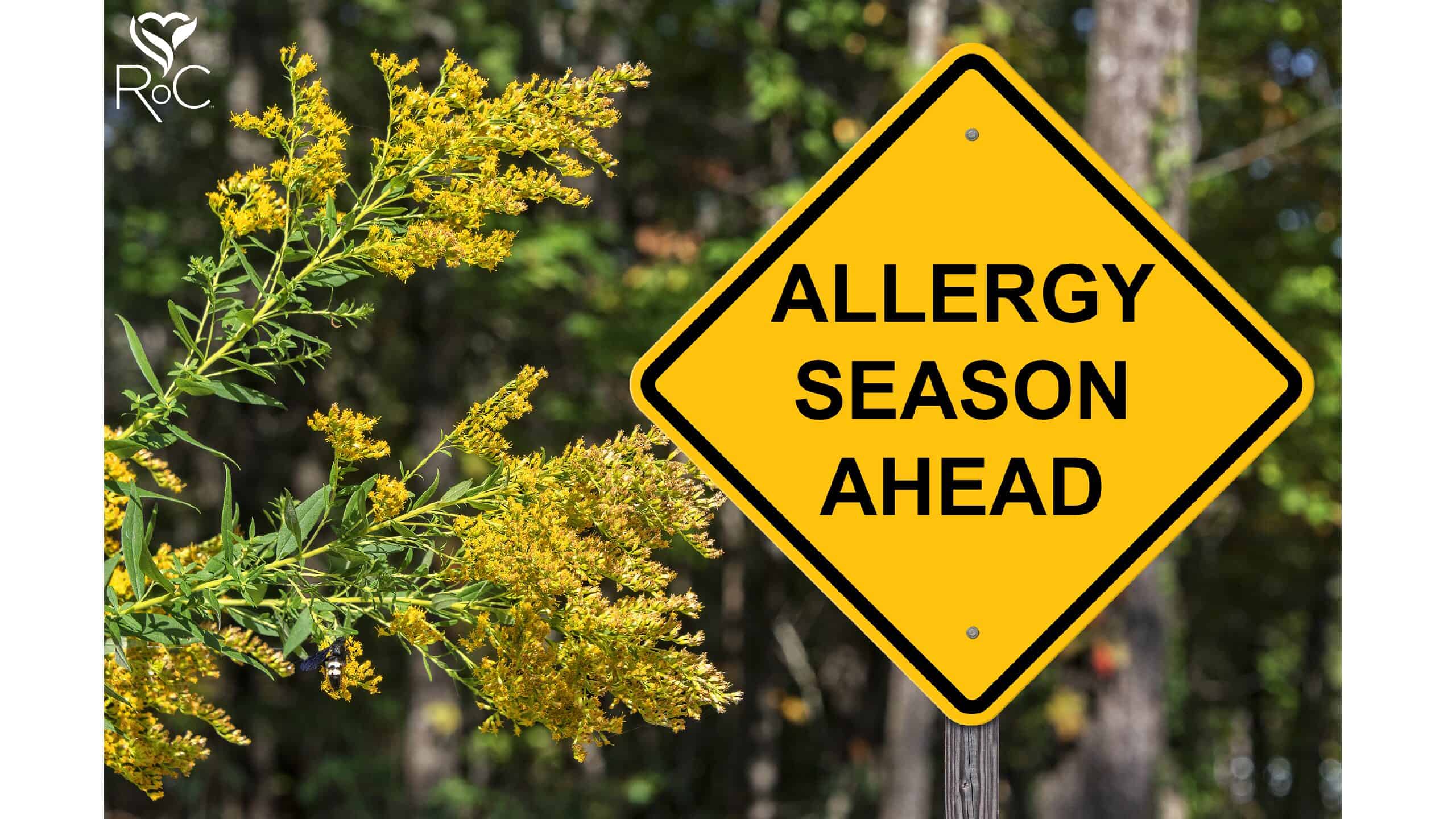What are Seasonal Allergies?
Allergy symptoms occur when your immune system responds to foreign material, aka an allergen. That may be something you ingest, inhale, inject into your bloodstream, or come into contact with. According to the American College of Allergy, Asthma, and Immunology, allergies are the 6th leading reason behind chronic illness in the U.S.
Seasonal allergies, in particular, which are more famously known as hay fever, are one of the most common kinds of allergies around. Hay fever is the immune system’s reaction to air saturated with pollen from wind-pollinated plants like trees, grasses, and weeds. Sneezing, stuffy nose, watery eyes, itchy sinuses, throat or ear canals, ear inflammation, and postnasal discharge are among the most frequent symptoms which vary in severity. Headaches, shortness of breath, wheezing, and coughing can also occur.
Current Treatment of Seasonal Allergies
Despite allergies being so common amongst the world’s population, there is no absolute cure. Allergies, or ‘allergic rhinitis’, are mainly managed by avoiding triggers and relieving symptoms. For example, steering clear of cigarette smoke and pollen. People do so by using HEPA filters in their air conditioning instead of fans in the spring and summer. Another practice is staying home when pollen counts are high and closing windows.
Other medical options include prescription drugs and over-the-counter decongestants, and antihistamines, such as Zyrtec and Benadryl. Sometimes allergy shots are prescribed in extreme cases. But most allergy drugs have nasty side effects like dizziness and confusion. Another alternative has come up without any noticeable side effects which has been revealed to be CBD oil.
CBD as Allergies Symptoms Reliever
Cannabidiol, or CBD, an active ingredient derived from the hemp plant, is receiving more attention as people become more aware of the medicinal benefits of cannabis. CBD oil has very low amounts of THC, so it won’t get you high. However, while CBD research is still in its initial phases, some studies show promising results on possible health benefits, including chronic pain management, stress relief and combating reactions to allergens.
A study published in 2005 revealed that CBD has immunosuppressive and anti-inflammatory properties across cells of the respiratory system. So it may function as a natural antihistamine. CBD and other anti-inflammatories can help to manage some of the more severe reactions and alleviate symptoms such as inflammation around the nose, throat, and mouth. It can be ingested through tinctures/oils, vaping, edibles, or capsules to avoid any irritation.
CBD also helps control the activity and development of white blood cells that respond when the body is exposed to allergens according to a 2009 study. Which is another reason why it may be an effective therapy for seasonal allergies. In addition, CBD has been reported to prevent the blocking of airways and nasal congestion that typically results in coughing and breathing problems.
Another study published in 2014 found that A-Pinene, a terpene, was found to be a promising anti-allergic agent. A-Pinene is characterized by a powerful pine and sage aroma that demonstrated a decrease in some symptoms of allergic rhinitis in mice. This research suggests it may be useful in the clinical management of allergic rhinitis, therefore the ability to moderate the unbearable allergy season. Pinene may also help additional symptoms of allergies since it serves as an anti-inflammatory and bronchodilator.
You can use CBD oil along with or instead of traditional allergy therapies. As always, consulting with a medical professional is recommended; however Realm of Caring has resources such as this CBD dosage explainer to help you get started in this process. There is a lot to consider when starting cannabinoid therapy and a Realm of Caring care specialist is here to help with your questions. Contact us today by calling (719) 347-5400 or by emailing [email protected].
Disclaimer
The Realm of Caring Foundation specifically invokes the first amendment rights of freedom of speech and of the press without prejudice. These statements have not been evaluated by the food and drug administration. the products discussed are not intended to diagnose, cure, prevent or treat any disease. Realm of Caring always recommends when and wherever possible that licensed local healthcare professionals be consulted.
The Realm of Caring Foundation is an independent nonprofit with its own governing board. We do not produce or sell cannabinoid products, nor do we receive funds from the sale of other company’s products.






